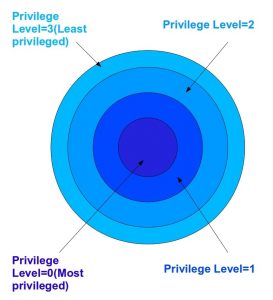Published by Hazel Booth
This series of posts has already shown how my topic has emerged (10), and how I have grown in my ability to tackle it (11). There was, however, an elephant in the room. If my work on epistemology and all that jazz(12) had made it clear that my own positionality was critical, I was going to have to own that shy pachyderm and deal with the steaming piles of ordure it left behind.
Not so long ago I wrote this (13):
 “I do see researchers who wear hats which reveal that they are both scholars and have lived experience, but they are few. It seems important to be one or the other. Co-pro is allied forces on the research battlefield, combining their skills. One lends the other the credibility of the facet they lack (scholarship or experience). For those who embody both, there seems a need to choose which hat to wear, and to choose wisely.”
“I do see researchers who wear hats which reveal that they are both scholars and have lived experience, but they are few. It seems important to be one or the other. Co-pro is allied forces on the research battlefield, combining their skills. One lends the other the credibility of the facet they lack (scholarship or experience). For those who embody both, there seems a need to choose which hat to wear, and to choose wisely.”
Identifying as a peer-researcher (14) is risky. I love the recognition that doing research ON people is a whole heap of difference than doing research WITH or BY them. I don’t deny that it has an insidious neoliberal footnote in which peer researchers get paid less for doing the same work, but still, it is a heartening shift. However, peer researchers need to be careful when they’re wearing two hats.
“I’ve been tinkering around the edges of stuff written by peer researchers recently. As part of that exercise I read a smashing bunch of papers written by Jijian Voronka. Her 2016 paper (15) is densely packed, but proved to be a worthwhile read. (I think) she says that peer researchers need to beware setting themselves up as poster-people of an entire group of those with lived experience. Lived experience alone does not mean that we are an homogenous lump. ”
I would agree. I have spent some time informally mapping the positions of peer researchers and mental health lived experience activists and advocates across blogs, Twitter, and Facebook. I see quite clearly that they do not speak with one voice. While they appear in broad agreement, they continue to experience profound conflicts of ideology. In some ways, it fragments the movement and weakens their voice, but they are all human and fighting a battle with direct personal risks. The stakes are high for each of them. Let’s not forget that to speak out in a hostile world is incredibly brave, especially when that hostility comes from those you would consider to be a broad ally. It is important not to forget too, that for each individual who has a voice as a peer researcher, or an activist, there are too many who cannot speak. For them the stakes are highest of all. This is life and death stuff people.
 We each have our own experiences, lives, loves, prejudices and positions and to suggest you speak for them all, delegitimises them. This is especially the case when you have the acquired the privilege of academic legitimacy – however challenged that legitimacy may be by the establishment. So it follows that peer researchers too, must check their privilege. That said, it is a place to start, it is something. The benefits outweigh the disadvantages.
We each have our own experiences, lives, loves, prejudices and positions and to suggest you speak for them all, delegitimises them. This is especially the case when you have the acquired the privilege of academic legitimacy – however challenged that legitimacy may be by the establishment. So it follows that peer researchers too, must check their privilege. That said, it is a place to start, it is something. The benefits outweigh the disadvantages.
Let’s not forget too, that for all the rhetoric around co-production and the importance of embracing the lived experience, it seems the loudest criticism can come from the very establishments in both HE and Health who spin the rhetoric of co-pro and extol the virtue of peer research. Their established positions of power mean that they can and do impose rules of engagement for acceptance into the talk-space. This acts to stifle co-pro until it becomes tokenistic in the very way that frustrates peer researchers – and so the conflict escalates.
I’ve read about people who dared to challenge the dominant system whose careers were quietly sidelined or crippled. I’ve seen people belittled on Twitter. I’ve seen opinions dressed as ‘facts’ and thrown like grenades into a conversation, creating a wound which allows the maintainers of the orthodoxy to dismiss the entire argument. This means that everybody stops looking for spaces of agreement where real progress can be made. This agreement crack is a space I am keen to occupy. So I am left with a decision.
When coming to a decision about whether to declare myself as a peer researcher, I have thought long and hard about the very topics I have described above. I realise now that my reluctance came from a position of fear. Fear that for all my vectors of disadvantage, I also occupy a position of privilege. I’m horribly aware that but for certain wonderful people in my life and some very lucky breaks, it could have all been so very different for me. There but for the grace of [symbolic icon of omnipotence] go I. How can I speak for those who do not have my advantages? Also, fear that I am not bright enough or brave enough to counter every challenge without wallowing in a pit of my own blood. More fear involves concerns that my position is shifting sand, growing, developing. It is changing with every encounter, every book, and every experience. Surely it makes me look naïve, to change so much? Finally, and importantly, fear that my fledgling career will be stopped before it begins.
A few pivotal thoughts have spurred me on. Whatever my privilege, however it distances me from others who share a corner of my experience in life, I can only do my best to be faithful to them and me, while remaining mindful of the inspiring complexity we all represent. Not being brainy enough? Well maybe so, but I can only keep listening, reading and learning, and learn when to accept fair criticism and reject the rest. Evolving opinions? That’s the name of the game. Being able to critically accept or reject new information is an important skill, and if change is the result, bring it on! I may screw up, but I can only do my best. As for the career sideline? I suddenly realised, I’m 52! I’d love to keep on keeping on with this work of mine, but if I can’t, I simply retire, do 1000 piece jigsaws and make sure the lawn has nice stripes on it.
 So, there we are, decision made. I draw my line in the sand, I tie my colours to the mast, I stick my head above the parapet. I shamelessly state all the clichés I can muster as an indicator that I’ve found my place and I claim it. I am a (fledgling) peer researcher. I have lived through some Pretty Bad Stuff but I’m soldiering on. After all, I’ve made it this far, and the only person I’ve ever nearly killed was me.
So, there we are, decision made. I draw my line in the sand, I tie my colours to the mast, I stick my head above the parapet. I shamelessly state all the clichés I can muster as an indicator that I’ve found my place and I claim it. I am a (fledgling) peer researcher. I have lived through some Pretty Bad Stuff but I’m soldiering on. After all, I’ve made it this far, and the only person I’ve ever nearly killed was me.
So there, I’ve done it. Perhaps it’s no wonder I struggled with imposter syndrome. In the next post I share how the contemporary academy is full of imposters, and how that’s no bad thing.
An important footnote: This little bit of writing is momentous for me, sharing it more so. It is humbling to realise that something so big to me, is so inconsequential in the general scheme of things and will pass with barely a raised eyebrow. This issue has been vexing me for months but now I’ve come to a decision, I can stop with the incessant brain chatter on this topic and get on with actually ‘doing’ the work I need to do.
About the author
 Hazel Booth is an ERSC-funded student currently in her first year of PhD studies with the Faculty of Social Science at Stirling University. She is expertly supervised by Tessa Parkes (FSS), Paul Cairney (Politics) and Nicola Ring (Napier, School of Health and Social Care) and is already very grateful for their expertise and apparently limitless tolerance.
Hazel Booth is an ERSC-funded student currently in her first year of PhD studies with the Faculty of Social Science at Stirling University. She is expertly supervised by Tessa Parkes (FSS), Paul Cairney (Politics) and Nicola Ring (Napier, School of Health and Social Care) and is already very grateful for their expertise and apparently limitless tolerance.
She has been keeping a blog since the early days of the ESRC open competition. In it she offers an open and personal account of her voyage on the choppy seas of PGR study. She has brought her blog to the pages of the Faculty newsletter, writing a series of posts for readers which reflect on the transformative experiences she has already had.
Hazel’s blog can be found at https://the-answer-is.dreamwidth.org/
References
(10) Link to blog post 1: ‘why opinions matter’
(11) Link to blog post 2: the discomfort of not knowing’
(12) Link to P in PhD’ https://the-answer-is.dreamwidth.org/9142.html
(13) Link to the post ‘Co-production with a capital CO’ https://the-answer-is.dreamwidth.org/11018.html
(14) Definition: “Peer research (sometimes called user focused research) is research that is steered and conducted by people with lived experience of the issue being studied. Peer research may be completely user-led, or it may be carried out by peer researchers working alongside non-peer researchers as part of a bigger research team.” (Mcpin Foundation)
(15) Voronka, J. (2016). The Politics of ‘People with Lived Experience’: Experiential Authority and the Risks of Strategic Essentialism. Philosophy, Psychiatry & Psychology, 23 (3/4), 189-201